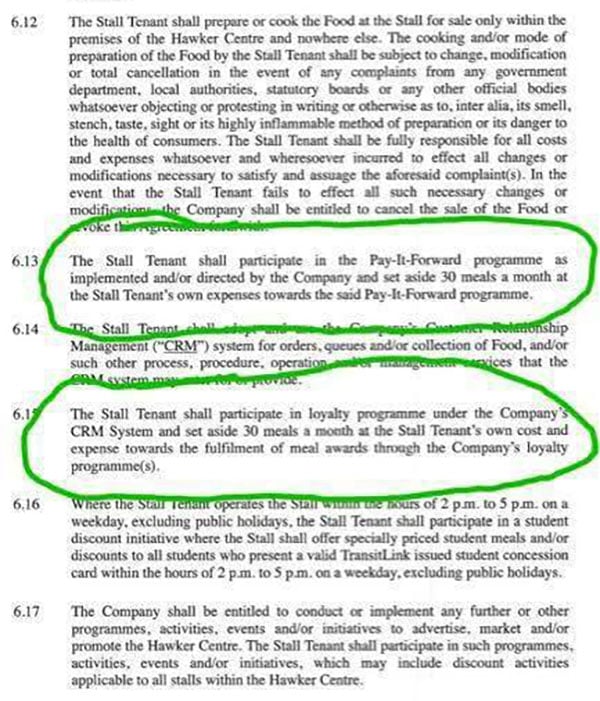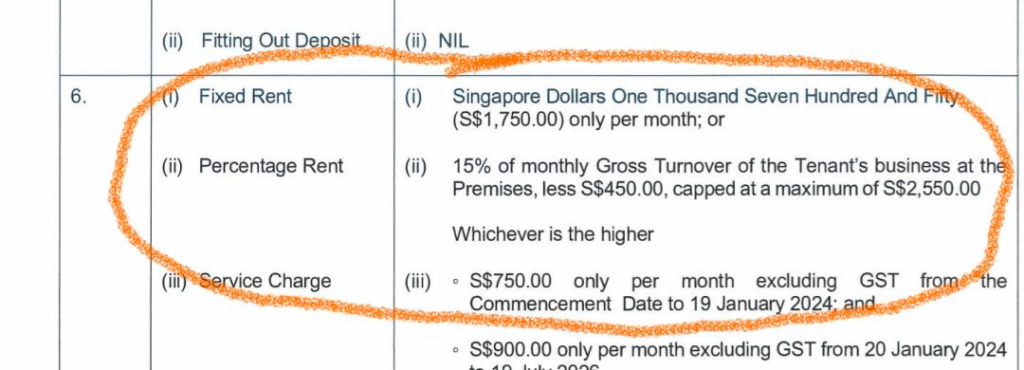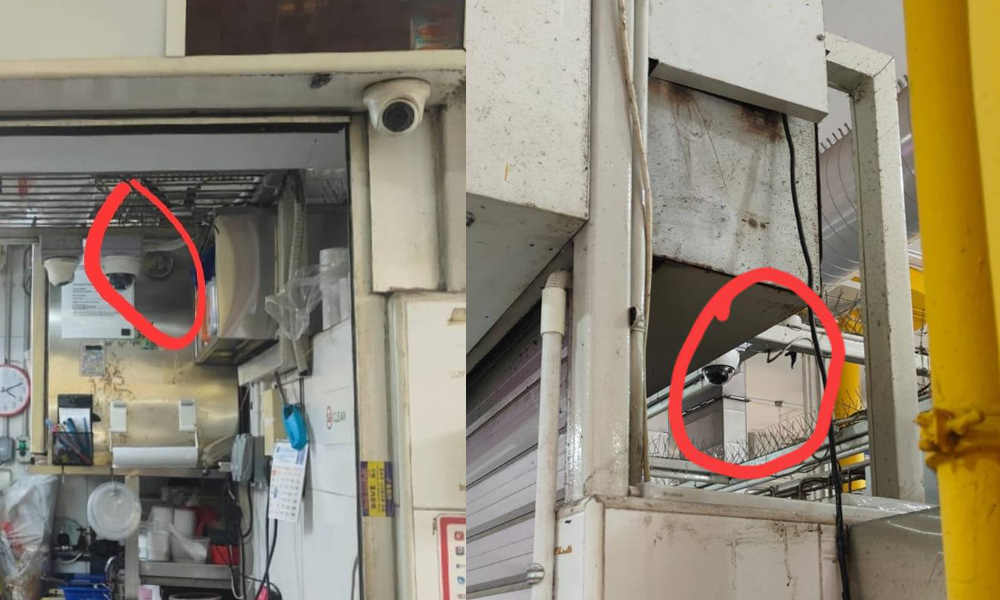Singapore’s veteran food critic and hawker culture advocate KF Seetoh has intensified his criticism of the social enterprise hawker centre (SEHC) model, describing it as fundamentally flawed and exploitative.
In a strongly worded Facebook post on 23 August 2025, Seetoh accused SEHC operators of profiteering under the guise of social responsibility, calling their tenancy contracts “oppressive” and “terrifying”.
His remarks follow mounting public concern over the structure and governance of SEHCs, and in particular, the role of private operators like Timbre Group and Canopy Hawkers Group.
Seetoh has called for a complete overhaul of the SEHC system and urged the National Environment Agency (NEA) and Singapore Food Agency (SFA) to initiate structural reforms.
From clause to controversy: Canopy’s charity meal requirement
The current debate was sparked by KF Seetoh’s earlier Facebook post highlighting that hawkers at Bukit Canberra Hawker Centre were contractually required to provide charity meals — a claim that was publicly denied by Health Minister Ong Ye Kung, who said no penalties would be imposed for non-participation.
Seetoh’s allegation prompted Lianhe Zaobao to investigate, and the newspaper later verified his claim by reviewing the actual tenancy contracts issued by Canopy Hawkers Group.
The documents confirmed that hawkers could face six demerit points and a S$50 fine per breach for failing to participate in the “Pay It Forward” charity meal scheme. Accumulating 24 points within a year could result in lease termination.

This clause directly contradicted earlier public statements by Health Minister Ong Ye Kung, who had said there were “no penalties” for hawkers who did not participate.
Canopy later issued a clarification in light of the public outcry, stating that the clause had not been enforced and would be excluded from future contracts. However, the clause remains binding in existing contracts.
Seetoh in his latest post said, “It’s not the hawkers’ duty to feed the poor and destitute. If you cannot afford a meal, please see your MP for help.”
He argued that charity should be voluntary, not enforced by contract, and questioned how such conditions were ever approved for use in public hawker centres.
Seetoh turns to Timbre: “Another rotten leaf in the forest”
Following Canopy’s clarification about the charity clause, Seetoh shifted focus to another SEHC operator: Timbre Group, which manages Yishun Park Hawker Centre. Using images of the tenancy agreement signed by stallholders, Seetoh highlighted what he described as even more alarming contract terms.
According to the agreement, Timbre collects 15% of a stall’s gross turnover, capped at S$2,550 and subject to a minimum base. Hawkers must also pay a monthly fixed rent, service charges, and additional administrative fees.

Seetoh described the setup as a model that punishes success: “They collect rent, and conveniently take 15% from successful hawkers.”
Hawkers are also required to use Timbre’s approved POS system, pay vector control fees, subscribe to data services, and even use gas providers designated by the landlord, despite hawkers’ protests over higher prices.
What disturbed Seetoh most was the presence of surveillance cameras in each stall, which he claims can record audio as well as video.
These systems, together with mandatory POS reporting, allow the operator to monitor every transaction in real time.

Adding to this are 18 categories of S$100 fines, which hawkers can incur for a variety of violations — such as refusing to accept the centre’s loyalty app, failing to enter data into the POS system, or even discussing internal matters publicly without permission.
“Timbre’s 25-page contract rules and regulations are terrifying,” Seetoh wrote. “Help them, if they are recalcitrant then warn, before you issue penalties.”
Double standards in hawker governance?
Seetoh’s broader concern is not simply about individual operators, but what he sees as inconsistent standards between Government-run hawker centres and those managed by private social enterprise operators under NEA’s appointment.
In the same post, Seetoh shared pages from a six-page NEA tenancy contract used in hawker centres directly managed by the Government. He noted that while these still contain regulations on cleanliness, licensing, and pricing — they do not contain the commercial terms, punitive structures, or surveillance found in SEHC contracts.
He asked pointedly, “NEA’s own-managed Centres has only six pages. It’s restrictive enough yet leaves a lot of wiggle space for hawkers to thrive. Why the double standards… eludes me.”
Seetoh argued that many hawkers sign SEHC contracts without legal advice or close scrutiny, trusting in the Government’s endorsement of these operators. Yet, what they encounter instead is a quasi-corporate structure that restricts their independence while profiting from their labour.
“Hawkers sign on these ‘socially conscious’ contracts because it’s approved by a Government they trust. No questions asked,” he wrote.
Call for reform: A fresh structure, new leadership
Seetoh concluded his remarks by calling for a “whole-of-nation effort” to reform the SEHC system. He suggested that NEA and SFA either overhaul the current model or form a new agency made up of independent experts, professionals, and hawker advocates who can chart a more equitable path forward.
“NEA, please go revisit your duties to the public and revise these egregious SEHC systems. It’s clearly not working,” he stated.
As of now, neither NEA nor Timbre has responded publicly to the specific clauses highlighted in Seetoh’s post. The issue remains under active public scrutiny.
SEHC vs NEA contracts: Key differences
| Category | Timbre Group (SEHC) | NEA-managed Centre |
|---|---|---|
| Contract length | 25–28 pages | 6 pages |
| Rent structure | 15% of gross monthly turnover (capped), or S$1,750 fixed rent — whichever is higher | S$1,055 fixed rent only |
| Service charges | S$750/month, plus POS system rental, vector control, gas via approved provider | S$140/month for conservancy and service |
| Operational requirements | Mandatory $3 meal and calorie guidelines; must operate 5 days/week, 2 meals/day | Basic hygiene and notification of closures only |
| Surveillance | Mandatory POS use, real-time sales data access, CCTV in stalls | No mandated surveillance or monitoring tools |
| Penalties | 18 S$100 fines listed (e.g., POS non-use, app rejection, publicity) | Minimal, only related to hygiene/licensing breaches |
| Supplier control | Must use operator-approved gas supplier and POS vendor | No vendor lock-in or utility constraints |
| Closure/leave rules | Written permission needed for any day off | Notify NEA only if closed for >7 days |
The post KF Seetoh escalates SEHC criticism, citing unfair clauses and double standards in hawker contracts appeared first on The Online Citizen.


